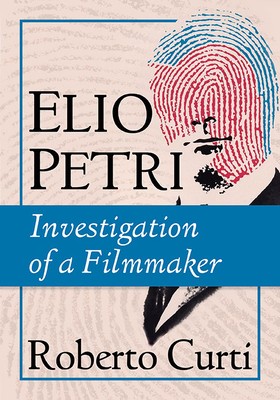
- We will send in 10–14 business days.
- Author: Roberto Curti
- Publisher: McFarland & Company
- ISBN-10: 1476680345
- ISBN-13: 9781476680347
- Format: 17.5 x 25.2 x 2 cm, minkšti viršeliai
- Language: English
- SAVE -10% with code: EXTRA
Reviews
Description
Elio Petri (1929-1982) was one of the most commercially successful and critically revered Italian directors ever. A cultured intellectual and a politically committed filmmaker, Petri made award-winning movies that touched controversial social, religious, and political themes, such as the Mafia in We Still Kill the Old Way (1967), police brutality in Investigation of a Citizen Above Suspicion (1970), and workers' struggles in Lulu the Tool (1971). His work also explored genre in a thought-provoking and refreshing manner with a taste for irony and the grotesque: among his best works are the science fiction satire The 10th Victim (1965), the ghost story A Quiet Place in the Country (1968), and the grotesque giallo Todo modo (1976). This book examines Elio Petri's life and career, and places his work within the social and political context of postwar Italian culture, politics, and cinema. It includes a detailed production history and critical analysis of each of his films, plenty of never-before-seen bits of information recovered from the Italian ministerial archives, and an in-depth discussion of the director's unfilmed projects.
EXTRA 10 % discount with code: EXTRA
The promotion ends in 22d.04:56:28
The discount code is valid when purchasing from 10 €. Discounts do not stack.
- Author: Roberto Curti
- Publisher: McFarland & Company
- ISBN-10: 1476680345
- ISBN-13: 9781476680347
- Format: 17.5 x 25.2 x 2 cm, minkšti viršeliai
- Language: English English
Elio Petri (1929-1982) was one of the most commercially successful and critically revered Italian directors ever. A cultured intellectual and a politically committed filmmaker, Petri made award-winning movies that touched controversial social, religious, and political themes, such as the Mafia in We Still Kill the Old Way (1967), police brutality in Investigation of a Citizen Above Suspicion (1970), and workers' struggles in Lulu the Tool (1971). His work also explored genre in a thought-provoking and refreshing manner with a taste for irony and the grotesque: among his best works are the science fiction satire The 10th Victim (1965), the ghost story A Quiet Place in the Country (1968), and the grotesque giallo Todo modo (1976). This book examines Elio Petri's life and career, and places his work within the social and political context of postwar Italian culture, politics, and cinema. It includes a detailed production history and critical analysis of each of his films, plenty of never-before-seen bits of information recovered from the Italian ministerial archives, and an in-depth discussion of the director's unfilmed projects.


Reviews